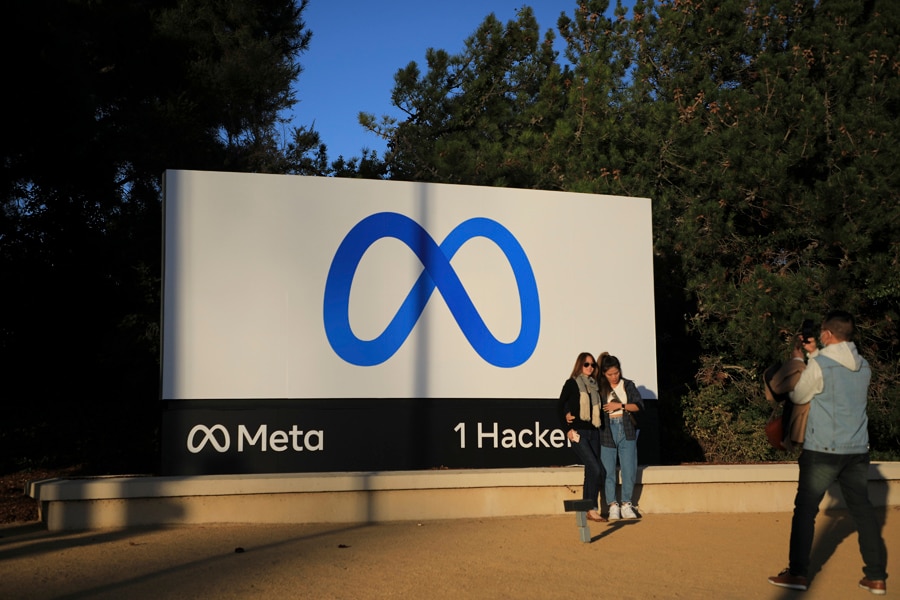
How Facebook is morphing into Meta
Meta would introduce people to shared virtual worlds and experiences across different software and hardware platforms
 New signage for Meta, the parent company of Facebook, in Menlo Park, Calif. on Nov. 4, 2021. Shifting a 68,000-person social networking company toward the theoretical metaverse has caused internal disruption and uncertainty at Meta. (Jim Wilson/The New York Times)
New signage for Meta, the parent company of Facebook, in Menlo Park, Calif. on Nov. 4, 2021. Shifting a 68,000-person social networking company toward the theoretical metaverse has caused internal disruption and uncertainty at Meta. (Jim Wilson/The New York Times)
The Instagram engineer had already packed his bags for a December vacation when his boss pulled him into a virtual meeting to talk about job goals for 2022.
Their conversation soon took an unexpected turn. Forget the goals, his boss told him. To succeed at Meta, the parent company of Facebook and Instagram, his boss said, he should instead apply to a new position in the burgeoning augmented reality and virtual reality teams. That’s where the company needed people, he said.
The engineer, who had worked at Instagram for more than three years and who declined to be identified for fear of retaliation, was taken aback by essentially having to reapply for a job. He said he hadn't decided what to do.
Mark Zuckerberg, founder and CEO of the company formerly known as Facebook, has upended his company ever since he announced in October that he was betting on the so-called metaverse. Under this idea, his company — renamed Meta — would introduce people to shared virtual worlds and experiences across different software and hardware platforms.
Since then, Meta has pursued a sweeping transformation, current and former employees said. It has created thousands of new jobs in the labs that make hardware and software for the metaverse. Managers have urged employees who worked on social networking products to apply for those augmented reality and virtual reality roles. The company has poached metaverse engineers from rivals including Microsoft and Apple. And it has officially rebranded some products, like its Oculus virtual-reality headsets, with the Meta name.
©2019 New York Times News Service







